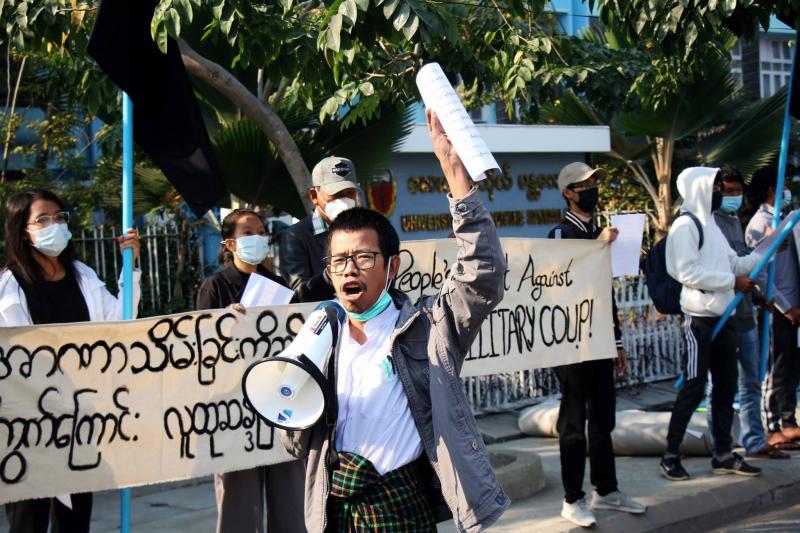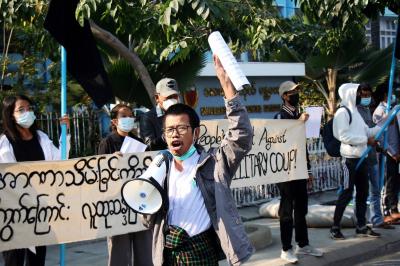Protests continued on Thursday in the streets of Myanmar after a day described by the United Nations special mission as the deadliest since the February 1 coup, with activists pledging to continue demonstrations despite the atmosphere of fear surrounding them.
In the economic capital, Yangon, small gatherings formed, where demonstrators chanted "We are united," and fortified themselves behind makeshift barriers made of old tires, bricks, sandbags, and barbed wire. According to eyewitnesses cited by Agence France-Presse, "staying in the streets is dangerous," as police and military are firing live ammunition; however, pro-democracy activists vowed to organize more protests.
A large crowd gathered on Thursday in Mandalay (the second-largest city in the country) to mourn a 19-year-old girl who died on Wednesday, with those attending her funeral, gathered around her flower-adorned coffin, chanting "We will not forgive your death until the end of the world." Chial Sin has become a symbol in the country; her image, shortly before she was shot fatally while wearing a shirt that read "Everything will be alright," spread on social media. Aung San Suu Kyi’s party announced that flags would be flown at half-mast in its offices in honor of the victims.
Reuters reported one activist saying, "We know that we can always be shot with live ammunition and killed, but there is no meaning in living under military rule, so we chose this dangerous path to salvation," adding, "We will fight the military junta in any way possible; our ultimate goal is to eradicate it." The army seems more determined than ever to extinguish the protests that have shaken the country since the coup that ousted Aung San Suu Kyi’s government.
On Wednesday, the UN special envoy to Myanmar, Christine Schraner Burgener, confirmed the deaths of 38 people during the security forces' crackdown on protests, and that the total number of protest-related deaths has surpassed 50 since the coup, including four minors, one of whom was a 14-year-old boy, according to NGOs.




